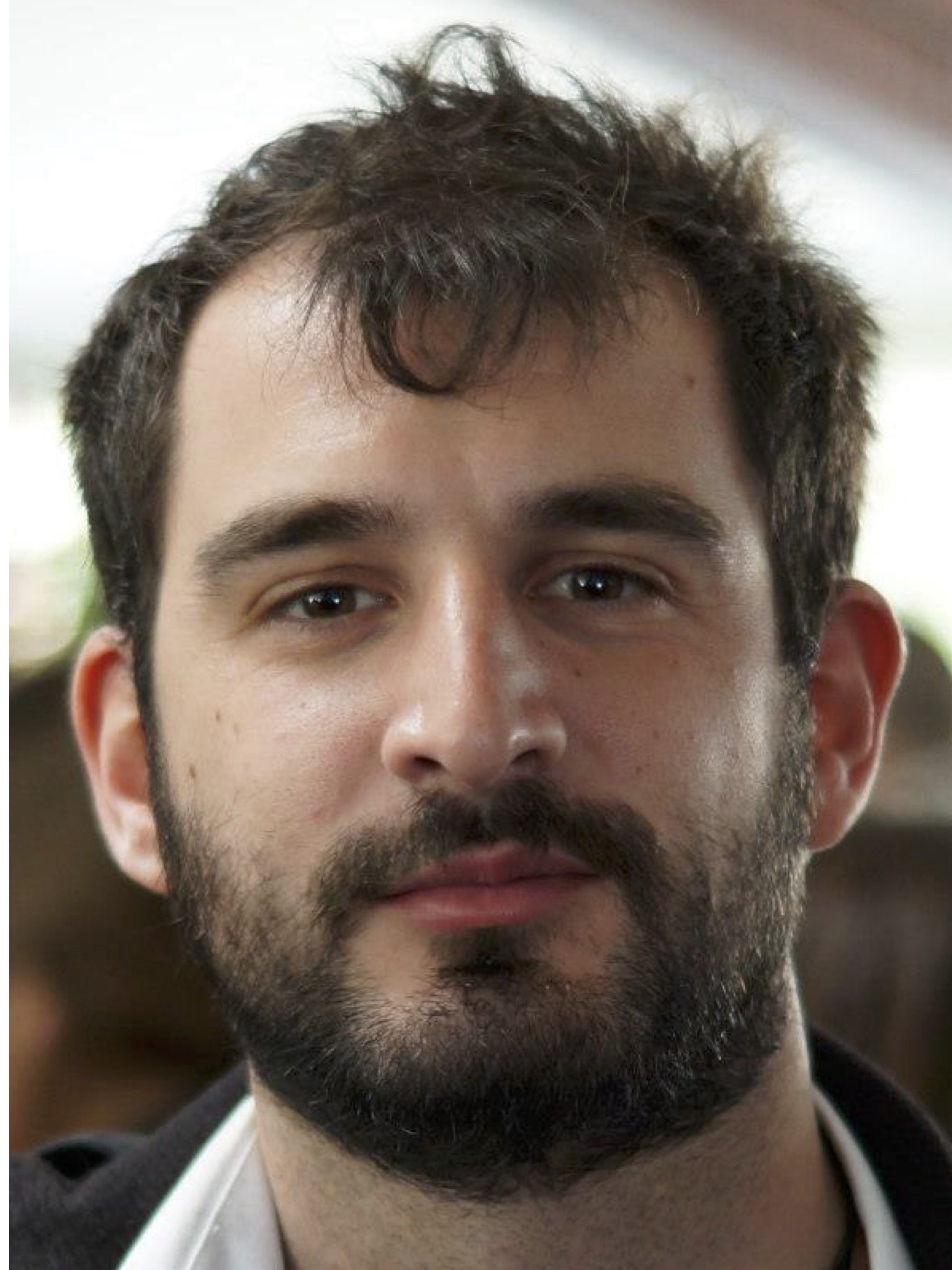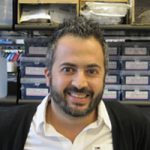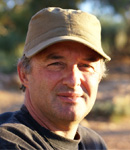 Dr Hollie Putnam (University of Rhode Island)
Dr Hollie Putnam (University of Rhode Island)
 Dr Alexandre Fellous (EPHE, CRIOBE Lab)
Dr Alexandre Fellous (EPHE, CRIOBE Lab)
As marine biologist, I have a great interest and a growing experience on marine organisms in the fields of epigenetics, evolutionary biology, reproduction, development and as well as in ecotoxicology, genomics and ecophysiology. I worked on different organisms such as algae, corals, crustaceans, molluscs and fish on the field and in lab. I focused my research on the characterization of epigenetic mechanisms as evolutionary potential to face global changes in marine organisms during development and gametogenesis.
 Dr Jose Eirin Lopez (University of Florida)
Dr Jose Eirin Lopez (University of Florida)
My research studies the links between ocean global change and the epigenetic mechanisms modulating acclimatory and adaptive responses in organisms across different marine ecosystems. I am primarily interested in combining different disciplines to expand environmental epigenetic analyses and their application to management and conservation of diverse ecologically and commercially relevant species.
Dr Steven Roberts
 Dr Céline Cosseau (University of Perpignan, IHPE Lab)
Dr Céline Cosseau (University of Perpignan, IHPE Lab)
My research work is related to the ecology and evolution of interacting biological systems. I am interested in the evolution and adaptation of species facing a stressful and fluctuating abiotic/biotic environment. More specifically, my work focuses on the involvement of epigenetic and genetic components to generate phenotypic variability to respond to these environmental variations. The models studied are invertebrates known to develop strong phenotypic plasticity: Biomphalaria glabrata and Crassostrea gigas lophotrochozoan molluscs and the platyhelminth parasite Schistosoma mansoni whose environment is very changing during its life cycle.
 Dr Juliet Wong (Florida International University)
Dr Juliet Wong (Florida International University)
I am an NSF Postdoctoral Research Fellow in Biology in the Environmental Epigenetics Lab (EELab) at Florida International University. Using a variety of physiological and molecular approaches, my research investigates how marine invertebrates interact with and respond to their changing environments. I am interested in mechanisms that can confer rapid phenotypic plasticity, and understanding how they may influence ecological and evolutionary processes in marine systems.
 Dr Jérémie Vidal-Dupiol (IFREMER, IHPE Lab)
Dr Jérémie Vidal-Dupiol (IFREMER, IHPE Lab)
My research was initially focused on the study of invertebrates responses to global change using experiments in controlled conditions and a set of omic tools including epigenomic. Since a couple of years I’m now targeting population approaches (genomic and epigenomic population) and try to identify the molecular mechanisms enabling rapid adaptation in this populations. My biological models/global changes effects of interest are tropical corals/global warming and edible oysters/pathogen emergence.
 Dr Guillaume Rivière (University of Caen, BOREA Lab)
Dr Guillaume Rivière (University of Caen, BOREA Lab)
My research work is related to the role of DNA (de-)methylation (5mC), RNA methylation (m6A-RNA), nucleosome chemical modifications and of their regulators in the development and reproduction in a distant model, the oyster Crassostrea gigas. My research focuses on the description and understanding of epigenetic and epitranscriptomic mechanisms regulating gene expression/chromatin structure in cell differentiation during evolution. For this purpose I’m interested into the embryo development and reproduction (including triploïd oysters), i.e. processes underlied by an important cell differentiation in a context of a strong exposure/sensitivity to environmental parameters.
 Dr Mihhail Matz (University of Texas)
Dr Mihhail Matz (University of Texas)
Our lab is interested in how marine organisms adapt to environmental variation throughout their range and over time at the genomic level. We focus on population genetics, molecular adaptation, gene regulation, and epigenetics of reef-building corals. We also develop novel laboratory and bioinformatic methods for genomic analysis of non-model organisms.
 Dr Francesc Piferrer (Institute of Marine Science of barcelona)
Dr Francesc Piferrer (Institute of Marine Science of barcelona)
The lab of Dr. Francesc Piferrer, the Group of Biology of Reproduction (GBR), main research objectives are: 1) to understand how fish integrate genetic and environmental information, particularly for the development of the sexual phenotype; 2) to develop biomarkers of key performance indicators and protocols for the control of reproduction according to sustainable aquaculture principles; 3) to determine how species adapt to new environments in a global change scenario; and 4) the evolutionary transitions and environmental correlates associated with the distribution of the different sexual systems in fish. To achieve this, the GBR uses economically-relevant species, but also the zebrafish model, and modern genomic, epigenetic and transcriptomic approaches, as well as phylogenetic generalized linear models.
 Dr Enrico d’Aniello (Stazione Zoologica Anton Dohrn of Napoli)
Dr Enrico d’Aniello (Stazione Zoologica Anton Dohrn of Napoli)
 Dr Gabriele Procaccini (Stazione Zoologica Anton Dohrn of Napoli)
Dr Gabriele Procaccini (Stazione Zoologica Anton Dohrn of Napoli)
My main interest is in the understanding of the evolutionary history of populations and species along natural clines and of the plasticity of the adaptive response to climate and environmental changes, with particular focus on marine plants. In my research group, we approach the study in a multidisciplinary fashion, covering morphological, physiological, transcriptomic and genetic/epigenetic levels.
 Dr Yaamini R. Venkataraman (Woods Hole Oceanographic Institution)
Dr Yaamini R. Venkataraman (Woods Hole Oceanographic Institution)
I am interested in how climate change impacts marine invertebrates using genomic techniques. I started this work examining how ocean acidification influences DNA methylation impacts in Pacific and eastern oysters. Now, I explore how various -omic mechanisms (ex. DNA methylation, chromatin accessibility, gene expression, metabolomics) interact to shape stress responses in both invertebrate and fish models.




